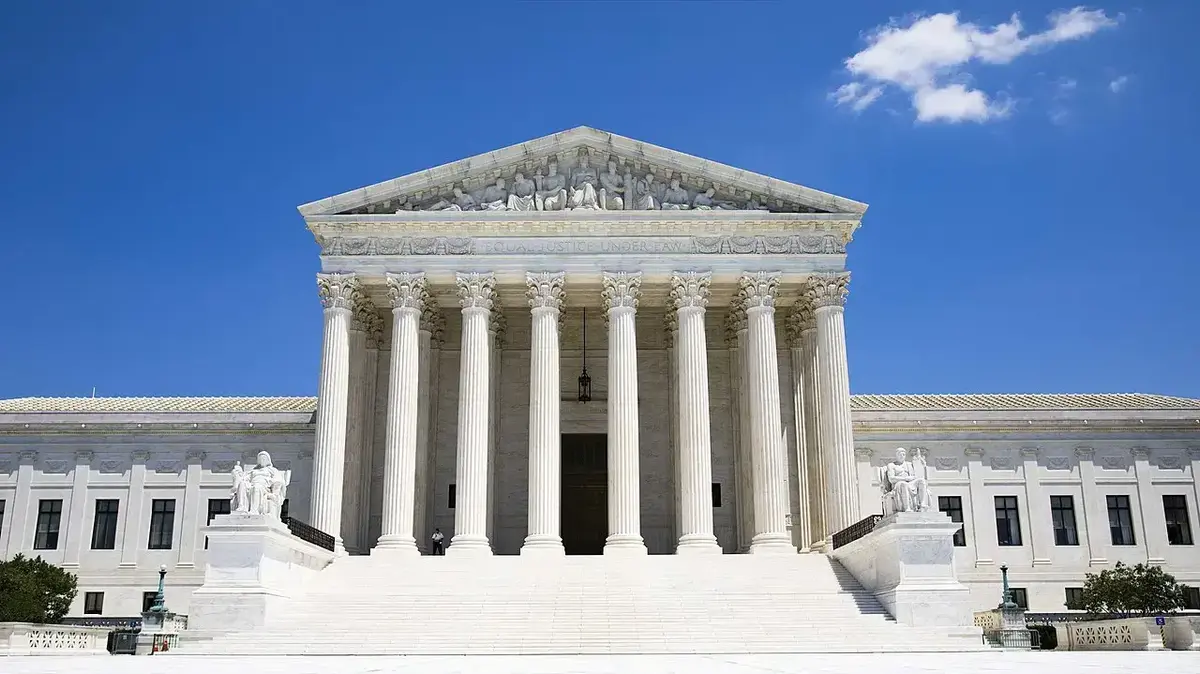The new session of the US Supreme Court is expected to be particularly stormy
Today the new session of the court opens after the summer vacation.
According to the list of cases that will be presented to him, commentators estimate that this session may be controversial, leaning to the right and full of precedents - at least like the previous session
news agencies
03/10/2022
Monday, October 3, 2022, 2:52 p.m. Updated: 3:02 p.m.
Share on Facebook
Share on WhatsApp
Share on Twitter
Share by email
Share in general
Comments
Comments
After a particularly stormy session that ended in June, the United States Supreme Court returned today (Monday) to open a new session that may be just as stormy.
In the previous session, the justices of the Supreme Court turned sharply to the right, overturning, among other things, the precedent ruling "Roe v. Wade" that gave women all over the United States the right to a safe abortion.
In the current session, the court may make other unprecedented decisions, even though its approval rating is now at a historic low.
The issue of precedents will come up again in the new session in the case challenging the affirmative action programs at Harvard and North Carolina universities.
For more than four decades, the court has ruled that race is one of many factors to consider in the college admissions of new students.
But the issue is now back in a completely different courtroom.
The most important question is whether the decisions on the subject in the past were a grave mistake, the same justification used by the majority in the previous session in the reversal of Roe v. Wade.
Supreme Court judges before the appointment of Katanji Brown (Photo: Reuters)
In the affirmative action case, the lawsuit relies on a 1954 Supreme Court decision that outlawed segregation in public schools.
In other words, affirmative action, according to the lawsuit, is a form of discrimination.
Race is also at the center of another case that focuses on a section of the Voting Rights Act.
Since 2013, the court has struck down key sections of the groundbreaking 1965 law.
It seems that he intends to do it again in the case in question, which involves accusations that the state of Alabama implemented a bias in the determination of electoral districts (Gerrymandering - an activity of the authorities to change the boundaries of electoral districts in regional elections in a way that will lead to the results desired by the government), in order to limit the influence of black voters .
And in another case over the Native American Child Welfare Act of 1978, the state of Texas and a group of white adoptive parents are suing the law because it requires that, whenever possible, Native American families and Native American households must adopt or provide foster care for Native American children.
The new judge in the liberal camp, Katanji Brown (Photo: Reuters)
Two other important cases will reach the court and are expected to attract a lot of attention.
The first is a test of human rights laws that exist in most countries, according to which, if a commercial entity offers products or services to the public, then the business must not discriminate based on race, religion, nationality, origin or gender.
Lori Smith, a graphic designer from Colorado is not ready to design for same-sex couples.
She is suing because she says this is a violation of her religious principles.
But the Supreme Court does not examine the claim on the basis of the claim of freedom of religion, but on the more limited basis of a violation of the right to freedom of expression.
"If Smith is right about the right to freedom of speech that gives her the opportunity to choose her clients based on the messages and principles she supports," then the law should also allow a supporter of white supremacy to refuse to provide services to non-whites, because even in that case "it's a message he supports, she said Georgetown University's Kelsey Cochran for NPR.
More in Walla!
Drama in the USA: The Supreme Court canceled the right to abortion
To the full article
A demonstration in the US against the ban on abortion following the Supreme Court ruling in June (Photo: Reuters)
In the latest case, the Supreme Court will discuss an important election law related to the "theory of independent state legislatures".
This interpretation is promoted by a group of right-wing activists who want to give the state legislatures more extensive authority to implement bias in determining electoral districts and enact laws to suppress voters.
It can be used as a political cover for attempts to reverse election results.
In essence, the theory aims to reduce the system of checks and balances imposed on the legislatures of the various states when they enact laws related to federal elections.
Several Supreme Court justices have already expressed their support for making the theory a constitutional law.
In that case, the North Carolina Supreme Court struck down a congressional redistricting plan on the grounds that it was an illegal act of bias in drawing districts on a racial basis that the state constitution prohibits.
Republican leaders of the Legislature challenged the state court's decision.
According to them, the ruling violates the first section of the American Constitution, which states that the "times, places and manner" of congressional elections "shall be determined in each state by the state legislature."
In the extreme interpretation, this argument means that no state court and no state agency can interfere with the election laws of state legislatures, regardless of the laws established by the Constitution.
Opponents argue that this means that state legislatures will be free to do almost anything they want, without oversight or direction from state courts.
Judges in the state's various courts usually disagree, but in this case, the National Conference of Supreme Court Justices, which represents judges in all 50 states, objected to North Carolina's argument.
According to them, state judges have the authority under the US Constitution to oversee local election laws.
news
world news
America
Tags
United States
Supreme Court
United States Supreme Court





